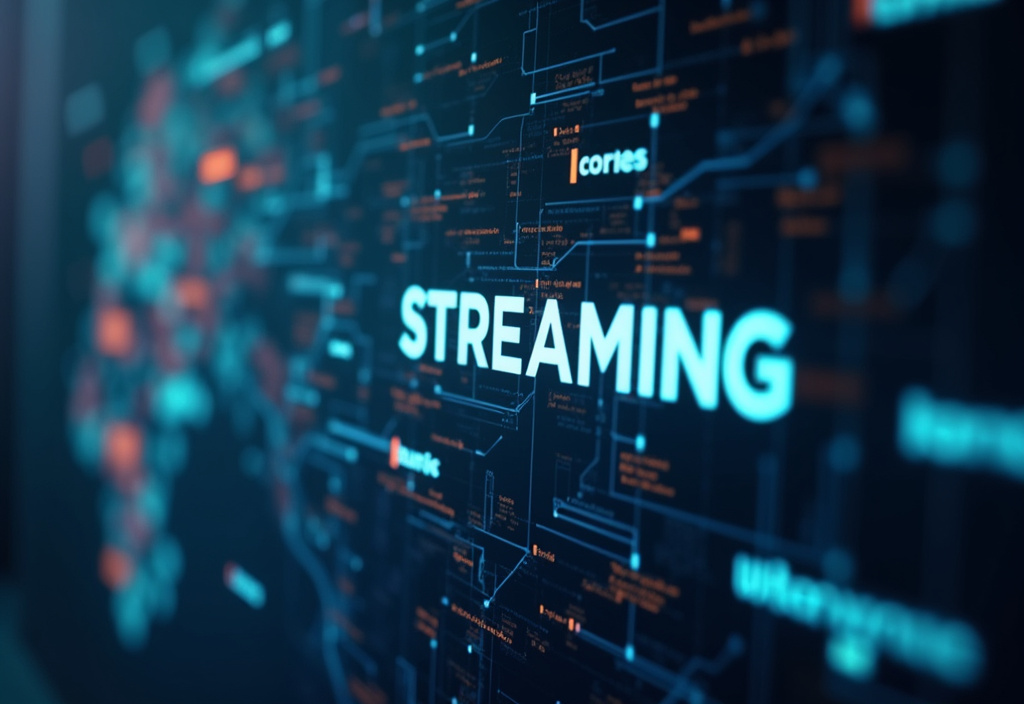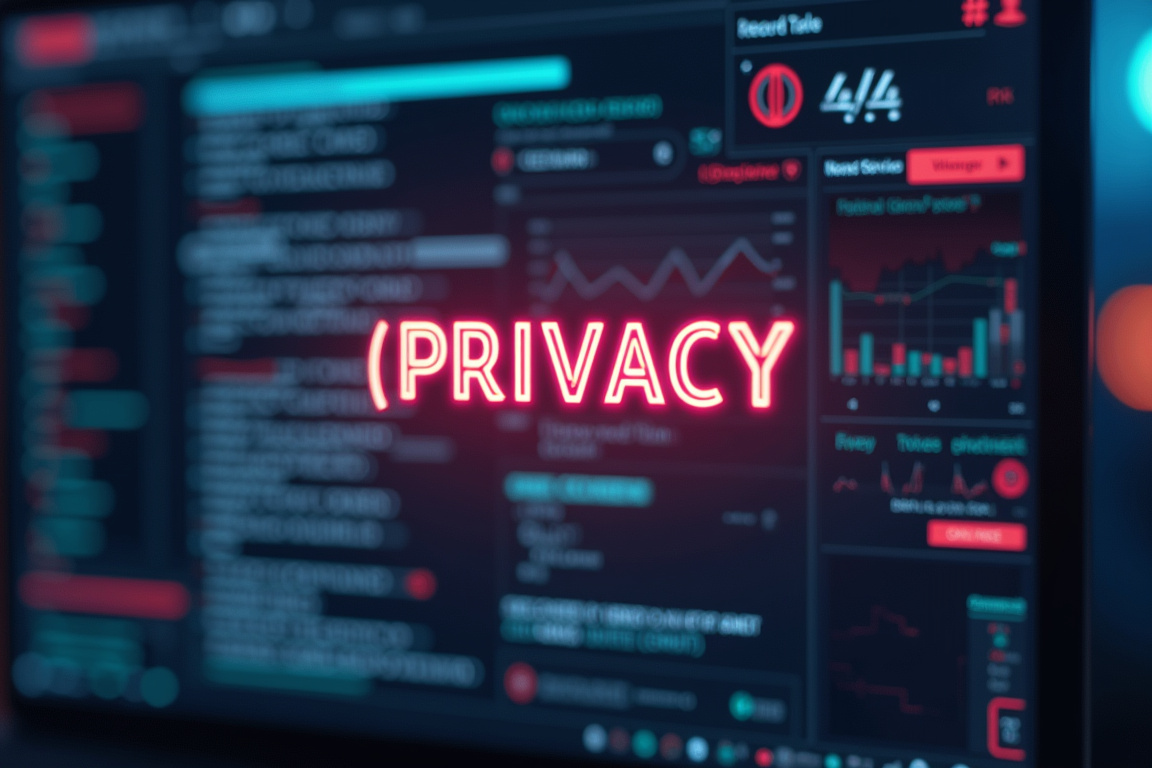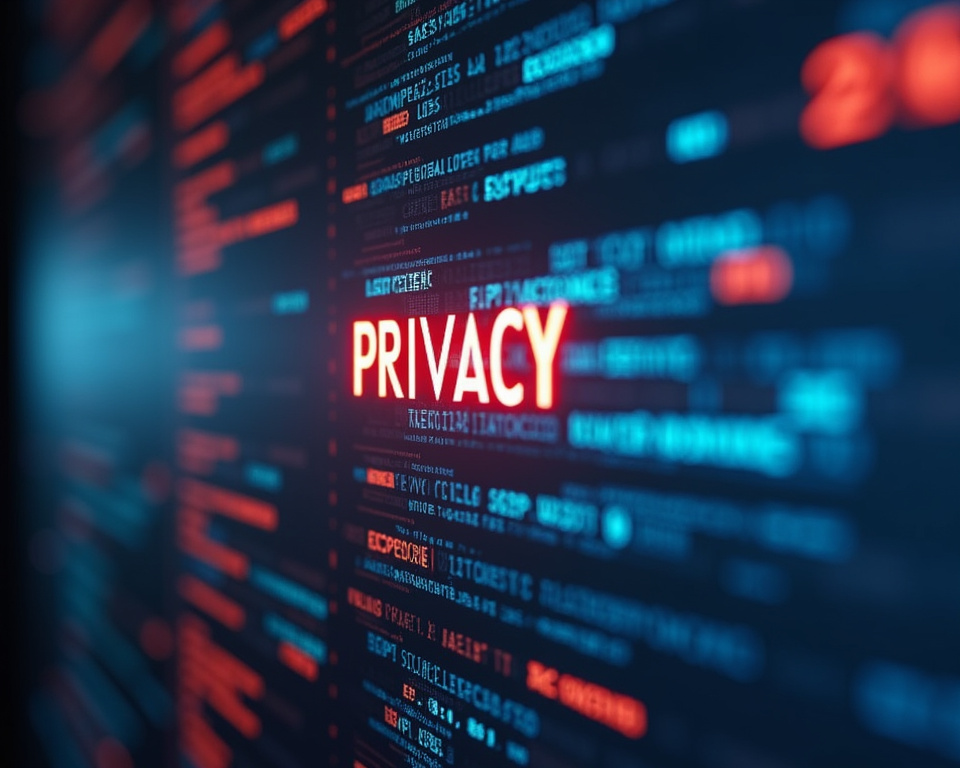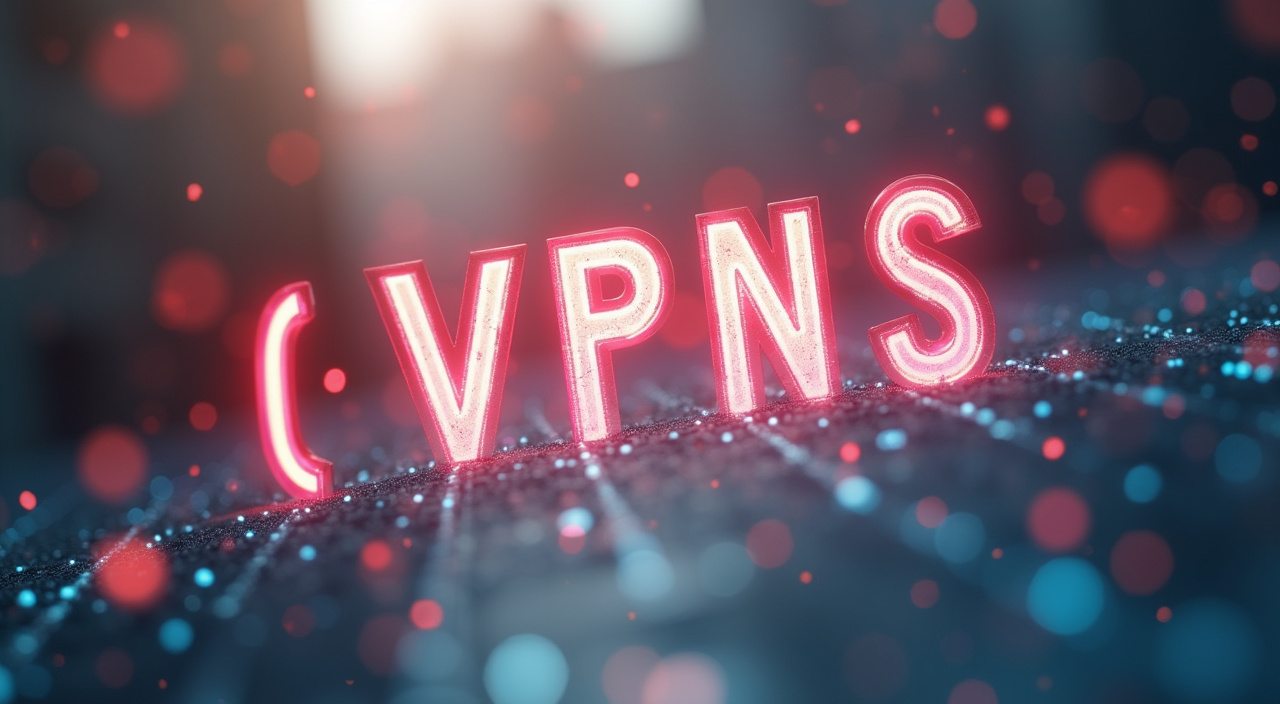VPNs and Smart TVs: Enable Private Streaming
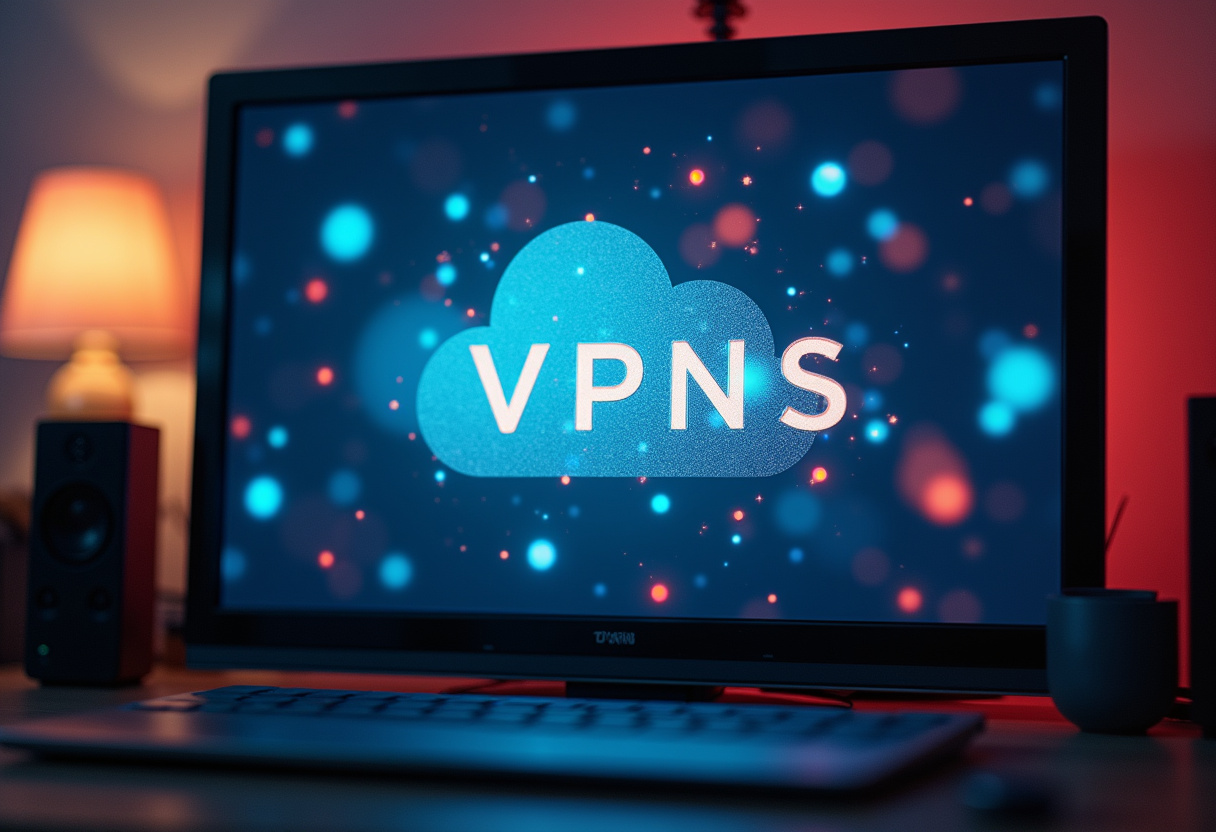
Table of Contents
Introduction: Smart TVs, Connectivity, and Privacy Concerns
In today's digitally interconnected world, our smart TVs have evolved from simple display screens to sophisticated portals of entertainment and information. These devices, central to our *home entertainment* systems, offer seamless access to a vast library of streaming services, applications, and online content. However, this increased connectivity also introduces potential vulnerabilities to our privacy and security.
The ability to track user activity, geographic restrictions imposed by streaming platforms, and the ever-present threat of cybercrime necessitates a proactive approach to safeguarding our digital footprint. This is where Virtual Private Networks (VPNs) come into play, providing a crucial layer of protection for *private streaming* and enhancing our overall online experience on smart TVs. Understanding the synergy between *Smart TV VPN* technology and entertainment systems is paramount for maximizing enjoyment while minimizing risks.
A VPN, in its essence, creates a secure and encrypted tunnel for internet traffic, masking the user's IP address and routing data through a server in a location of their choice. This process not only hides the user's true location but also encrypts the data being transmitted, making it virtually unreadable to prying eyes. For smart TV users, this translates to enhanced privacy from internet service providers (ISPs), government agencies, and malicious actors who might seek to monitor online activities or steal personal information.
Think of it as putting an invisible cloak around your internet activity, shielding it from unwanted surveillance. The implications of this increased privacy are significant. You can browse and stream content with greater peace of mind, knowing that your viewing habits are not being tracked or recorded.
This is particularly important in an era where data privacy is becoming increasingly crucial. By employing a VPN, users can effectively circumvent geographic restrictions imposed by streaming services, gaining access to content that might otherwise be unavailable in their region. This unlocks a world of entertainment possibilities, allowing users to enjoy their favorite shows, movies, and sporting events from anywhere in the world.
Imagine being able to access a broader range of content libraries, regardless of your physical location. This is especially beneficial for those who travel frequently or who have specific interests in content from other countries. The ability to bypass these restrictions transforms the viewing experience, opening up new avenues for exploration and enjoyment.
Furthermore, a VPN safeguards against potential throttling of internet speeds by ISPs, which can occur when streaming high-bandwidth content. This ensures a smooth and uninterrupted viewing experience, free from frustrating buffering or lag. ISPs sometimes throttle bandwidth based on the type of content being accessed, particularly when it comes to streaming.
A VPN can prevent this by masking the type of traffic, ensuring that your internet speed remains consistent and reliable. This leads to a far more enjoyable and seamless viewing experience, free from those annoying interruptions. The concept of *streaming security* extends beyond mere privacy, encompassing protection against malware, phishing scams, and other online threats that can compromise a smart TV's security.
A VPN acts as a shield, encrypting data and preventing unauthorized access to the device, thus minimizing the risk of cyberattacks. Smart TVs, like any connected device, are vulnerable to malware and cyberattacks. A VPN adds an extra layer of security by encrypting the data transmitted to and from the TV, making it more difficult for malicious actors to intercept or tamper with it.
This is crucial for protecting your personal information and preventing your TV from being compromised. Choosing the right VPN for a smart TV involves careful consideration of several factors, including *VPN compatibility* with the device's operating system, the availability of dedicated apps, server locations, speed, and security protocols. Not all VPNs are created equal, and some may offer better performance and features than others.
Therefore, it's crucial to research and select a VPN provider that specifically caters to the needs of smart TV users. Consider factors like the number of server locations offered, the speed of the servers, the security protocols used, and the user-friendliness of the VPN app. Reading reviews and comparing different VPN providers can help you make an informed decision.
By integrating a VPN into their home entertainment setup, users can unlock the full potential of their smart TVs while enjoying peace of mind, knowing that their online activities are protected and their privacy is preserved. The modern digital landscape demands a conscious approach to online security, and a VPN is an indispensable tool for safeguarding our digital lives, especially within the realm of smart TV entertainment. It's about taking control of your online experience and ensuring that your privacy and security are not compromised.
VPN Basics: Encrypting Your Smart TV Internet Traffic
The practical implementation of a *Smart TV VPN* varies depending on the specific smart TV model and operating system. Some smart TVs, particularly those running Android TV, offer native support for VPN apps, allowing users to directly download and install the VPN software from the app store. This is the most straightforward method, as it eliminates the need for additional hardware or complex configurations.
Once installed, the VPN app can be easily launched and connected to a server of the user's choice. The beauty of native app support lies in its simplicity and ease of use. It mirrors the experience of installing any other app on your smart TV, making it accessible even to those with limited technical expertise.
The app interface typically provides a user-friendly way to select a server location, connect to the VPN, and manage settings. For smart TVs that do not natively support VPN apps, alternative methods are required. One common approach is to configure the VPN on a router that connects to the internet.
By setting up the VPN on the router, all devices connected to the network, including the smart TV, will automatically be protected by the VPN. This method offers the advantage of securing all devices on the network simultaneously, but it requires some technical expertise to configure the router correctly. Think of it as creating a secure internet gateway for your entire home network.
All traffic passing through the router will be encrypted and protected by the VPN, ensuring that all connected devices, including your smart TV, benefit from the added security. This approach is particularly useful for securing multiple devices, such as computers, smartphones, and tablets, in addition to your smart TV. Another option is to use a virtual router, which involves creating a Wi-Fi hotspot on a computer or mobile device that is already connected to a VPN.
The smart TV can then connect to this virtual router to benefit from the VPN protection. While this method is relatively simple to set up, it requires the computer or mobile device to remain connected to the VPN and active at all times. This is a convenient option for temporary use or when a dedicated router setup is not feasible.
However, it's important to consider the potential impact on the performance of the computer or mobile device, as it will be handling both the VPN connection and the Wi-Fi hotspot simultaneously. Regardless of the chosen method, understanding the technical aspects of VPN integration is essential for ensuring a secure and reliable connection. For instance, selecting the appropriate VPN protocol, such as OpenVPN or IKEv2, can significantly impact the speed and stability of the connection.
OpenVPN is generally considered the most secure protocol, while IKEv2 offers faster speeds and better performance on mobile devices. The choice of protocol depends on your individual needs and priorities. If security is your primary concern, OpenVPN is the recommended option.
If you prioritize speed and performance, IKEv2 may be a better choice. The choice of server location also plays a crucial role in unlocking geo-restricted content. By connecting to a server in a country where the desired content is available, users can bypass regional restrictions and access a wider range of entertainment options.
For example, if you want to watch a TV show that is only available in the UK, you would connect to a VPN server located in the UK. This will make it appear as if you are accessing the internet from within the UK, allowing you to bypass the geographic restrictions. Furthermore, it's important to regularly update the VPN software to ensure that it incorporates the latest security patches and features.
VPN providers frequently release updates to address emerging threats and improve performance. Neglecting to update the VPN software can leave the smart TV vulnerable to cyberattacks. Think of VPN updates as security upgrades for your digital shield.
These updates often include patches to fix vulnerabilities, improvements to performance, and new features to enhance security. In the context of *private streaming*, understanding the nuances of VPN implementation is critical for maximizing the benefits of the technology. By carefully configuring the VPN settings and selecting the appropriate server location, users can enjoy a secure and unrestricted streaming experience.
The focus remains ensuring *VPN compatibility* by researching if the chosen VPN is compatible with your specific Smart TV. This may involve checking the VPN provider's website for a list of supported devices or consulting online forums and communities for user reviews and recommendations. Beyond the technical aspects, it's also important to be aware of the legal implications of using a VPN.
While VPNs are generally legal, there may be some jurisdictions where their use is restricted or prohibited. Furthermore, some streaming services may have terms of service that prohibit the use of VPNs to circumvent geographic restrictions. While the risk of legal repercussions is generally low, it's always advisable to be informed about the laws and terms of service in your region.
It's crucial to be an informed user and understand the potential consequences of using a VPN to access content that is restricted in your region. Ultimately, the successful implementation of a Smart TV VPN requires a combination of technical understanding, careful planning, and awareness of legal and ethical considerations. By taking the time to research and configure the VPN properly, you can significantly enhance your *home entertainment* experience while protecting your privacy and security.
Bypassing Geo-Restrictions: Unlock Global Streaming Content
The benefits of using a *Smart TV VPN* extend far beyond simply accessing geo-restricted content. A VPN provides a comprehensive layer of *streaming security*, protecting your online activity from various threats. ISPs can monitor your internet traffic and potentially throttle your bandwidth when you're streaming, as previously discussed, but with a VPN, your activity is encrypted, preventing them from seeing what you're doing.
This ensures a consistent and reliable streaming experience, free from unwanted interruptions. Think of it as having a private and secure connection that your ISP cannot interfere with. It's about reclaiming control over your internet connection and ensuring that you receive the bandwidth you're paying for.
Beyond ISP monitoring, a VPN also protects against hackers and other malicious actors who may try to intercept your data. When you connect to a public Wi-Fi network, such as at a hotel or airport, your data is particularly vulnerable. A VPN encrypts your data, making it unreadable to anyone who may be trying to eavesdrop on your connection.
This is especially important when you're accessing sensitive information, such as banking details or personal emails, on your smart TV. Imagine the peace of mind knowing that your personal information is protected, even when you're connected to a public Wi-Fi network. Furthermore, a VPN can help to prevent targeted advertising.
Many websites and advertising networks track your online activity to serve you personalized ads. A VPN masks your IP address, making it more difficult for these trackers to identify you and serve you targeted ads. While some people find personalized ads helpful, others find them intrusive.
A VPN gives you more control over your online privacy and allows you to limit the amount of tracking that takes place. It allows you to browse the internet without being constantly bombarded with ads that are tailored to your specific interests and browsing history. The increasing prevalence of smart home devices also raises concerns about privacy and security.
Smart TVs, with their built-in microphones and cameras, can potentially be used to monitor your activity in your home. While these features are often intended for legitimate purposes, such as voice control and video conferencing, they can also be vulnerable to hacking. A VPN encrypts the data transmitted between your smart TV and the internet, making it more difficult for hackers to access your device and potentially spy on you.
It acts as a protective barrier, safeguarding your privacy within your own home. Choosing the right VPN is crucial for maximizing these benefits. Look for a VPN provider that offers strong encryption, a large number of server locations, fast speeds, and a no-logs policy.
Strong encryption ensures that your data is protected from prying eyes, while a large number of server locations gives you more flexibility in accessing geo-restricted content. Fast speeds are essential for smooth and uninterrupted streaming, and a no-logs policy ensures that the VPN provider does not track your online activity. These factors are critical for ensuring a secure and private streaming experience.
Moreover, consider the VPN provider's reputation and customer support. Read reviews from other users and check if the provider offers a money-back guarantee. A reputable VPN provider will have a proven track record of protecting user privacy and providing reliable service.
Customer support is also important in case you encounter any issues with the VPN. A money-back guarantee allows you to try the VPN risk-free and ensures that you can get a refund if you're not satisfied with the service. In the context of *home entertainment*, a VPN is an essential tool for protecting your privacy and security while enjoying your favorite content.
It allows you to stream with confidence, knowing that your online activity is protected from prying eyes and that your personal information is safe. It expands your entertainment options, bypassing regional restrictions and unlocking a world of content that would otherwise be unavailable. It improves your streaming experience, preventing bandwidth throttling and ensuring smooth and uninterrupted playback.
By taking the time to choose the right VPN and configure it properly, you can significantly enhance your overall *home entertainment* experience. The key takeaway is that a VPN is not just about accessing geo-restricted content; it's about safeguarding your online privacy and security in an increasingly interconnected world.
Preventing ISP Throttling: Smooth, Uninterrupted Streaming
*VPN compatibility* is a cornerstone of successful *private streaming* on smart TVs. Before subscribing to any VPN service, meticulously verify that it supports your specific smart TV model and operating system. Many VPN providers maintain lists of compatible devices on their websites, which serve as a valuable resource during your research phase.
Moreover, explore online forums and communities dedicated to smart TVs and VPNs. These platforms often host discussions where users share their experiences with different VPN services on various smart TV models, providing insights that you might not find elsewhere. Compatibility issues can range from the VPN app not being available in your smart TV's app store to performance problems such as slow speeds or frequent disconnections.
Addressing these issues preemptively saves time and frustration. Beyond compatibility, consider the user interface (UI) of the VPN app. A clunky or unintuitive UI can significantly detract from the *home entertainment* experience.
Look for VPN apps that are designed specifically for smart TVs, with large, easily navigable menus and clear instructions. Some VPN providers offer customized apps for different smart TV platforms, taking into account the unique characteristics of each platform. A well-designed UI makes it easy to connect to a server, change settings, and troubleshoot any issues that may arise.
It contributes to a seamless and enjoyable streaming experience. Imagine trying to navigate a complex menu with a remote control – a user-friendly interface is crucial for avoiding frustration. Server location is another critical factor to consider.
A VPN with a vast network of servers in numerous countries offers greater flexibility in accessing geo-restricted content. Furthermore, servers located closer to your physical location tend to provide faster speeds. Therefore, it's important to choose a VPN provider with servers in the regions where you want to access content.
A diverse server network allows you to bypass geographic restrictions and enjoy a wider range of entertainment options. It also ensures that you can connect to a server that provides optimal performance for your location. Speed and bandwidth are paramount for seamless *streaming security*.
Smart TVs often require high bandwidth to stream content in HD or 4K resolution. A VPN with slow speeds can lead to buffering, lag, and other performance issues, ruining the viewing experience. Look for VPN providers that offer optimized servers for streaming, with high bandwidth and low latency.
Some VPN providers even offer speed test tools that allow you to measure the performance of their servers before subscribing. A fast and reliable VPN connection is essential for enjoying your favorite shows and movies without interruption. Security protocols play a crucial role in protecting your online privacy.
OpenVPN is generally considered the most secure protocol, but it can sometimes be slower than other protocols. IKEv2 is a faster protocol that is often used on mobile devices, while WireGuard is a newer protocol that offers a good balance of speed and security. Choose a VPN provider that offers a variety of security protocols, allowing you to select the one that best meets your needs.
Understanding the different security protocols and their strengths and weaknesses is essential for making an informed decision. Finally, consider the VPN provider's customer support. A reliable VPN provider should offer 24/7 customer support via email, live chat, or phone.
This ensures that you can get help quickly if you encounter any issues with the VPN. Test the customer support before subscribing by asking a few questions about the VPN service. A responsive and helpful customer support team is a sign of a reputable VPN provider.
Knowing that you can get help when you need it can provide peace of mind and enhance your overall experience with the VPN. In conclusion, selecting the right *Smart TV VPN* requires careful consideration of *VPN compatibility*, user interface, server location, speed, security protocols, and customer support. By taking the time to research and compare different VPN providers, you can find one that meets your specific needs and enhances your *home entertainment* experience while protecting your privacy and security.
Remember that the goal is to achieve a seamless and secure *private streaming* experience on your smart TV.
Maintaining a *Smart TV VPN* for optimal *private streaming* involves ongoing monitoring and adjustments. While the initial setup is crucial, the digital landscape is constantly evolving, requiring proactive measures to ensure continued security and performance. Regularly check for updates to both the VPN application and your smart TV's operating system.
Updates often include security patches that address newly discovered vulnerabilities, protecting your device from potential threats. Failing to update can leave your smart TV exposed, negating some of the benefits of using a VPN in the first place. Treat these updates as essential maintenance for your digital security.
Periodically test the VPN connection to verify that it is functioning correctly. This can be done by checking your IP address before and after connecting to the VPN to ensure that it has been successfully masked. Several websites offer IP address lookup services, making it easy to confirm your VPN connection.
You should also test the speed of the VPN connection to ensure that it is still providing adequate bandwidth for streaming. Speed tests can be performed using online tools or through the VPN application itself. Regular testing allows you to identify any performance issues and take corrective action.
Monitor data usage, especially if your VPN provider has bandwidth limits. Streaming high-definition content can consume significant amounts of data, and exceeding your bandwidth limit can result in reduced speeds or even service interruption. Many VPN applications provide data usage statistics, allowing you to track your consumption and avoid exceeding your limit.
If you consistently exceed your bandwidth limit, consider upgrading to a plan with more data or switching to a VPN provider that offers unlimited bandwidth. Managing data usage ensures that you can continue enjoying your favorite content without interruption. Be aware of potential DNS leaks.
A DNS leak occurs when your DNS requests are not being routed through the VPN server, potentially exposing your browsing activity to your ISP. Several websites offer DNS leak testing services, allowing you to verify that your DNS requests are being properly protected. If you detect a DNS leak, contact your VPN provider for assistance or try changing your DNS settings manually.
Preventing DNS leaks is crucial for maintaining your online privacy. Review the VPN provider's privacy policy regularly. Privacy policies can change over time, and it's important to stay informed about how your data is being collected and used.
Ensure that the VPN provider has a clear and transparent privacy policy and that it does not log your browsing activity. If you are concerned about the VPN provider's privacy practices, consider switching to a different provider. Protecting your privacy requires constant vigilance.
Secure your smart TV itself. Change the default password on your smart TV and enable any security features that are available, such as two-factor authentication. Be cautious about downloading apps from untrusted sources, as they may contain malware.
Limit the amount of personal information that you store on your smart TV and be mindful of the permissions that you grant to apps. Securing your smart TV is essential for protecting your privacy and security, even with a VPN. It's about creating multiple layers of protection to minimize the risk of cyberattacks.
Ensure that the *VPN compatibility* remains after Smart TV updates, as some updates may interfere with the VPN functionality and in extreme cases cause *streaming security* vulnerabilities. Contacting your VPN provider and checking online communities is suggested. In the realm of *home entertainment*, proactively maintaining your *Smart TV VPN* is an ongoing responsibility that requires attention to detail.
By diligently monitoring performance, staying informed about security updates, and securing your smart TV, you can ensure a safe and enjoyable streaming experience. Remember, privacy is not a one-time setup, but rather a continuous process.
Stay Updated
Get the latest VPN news, tips, and exclusive deals to your inbox.
